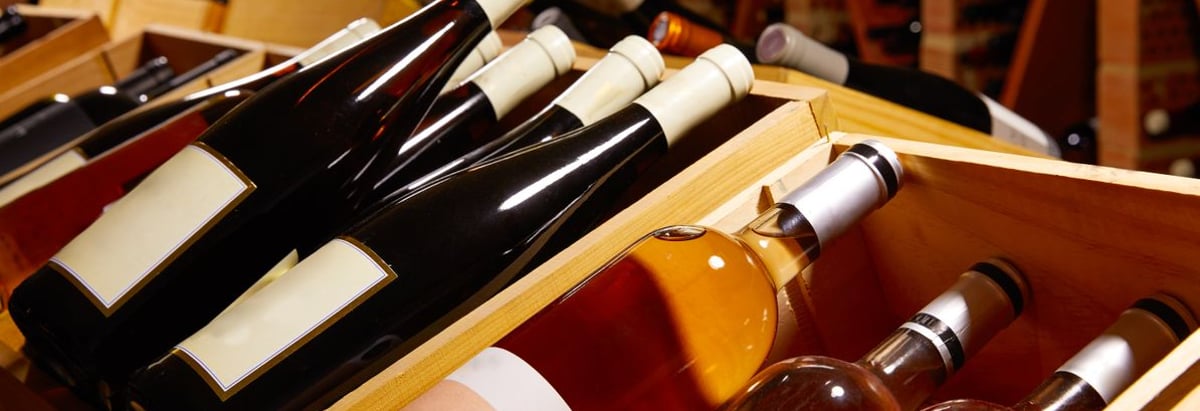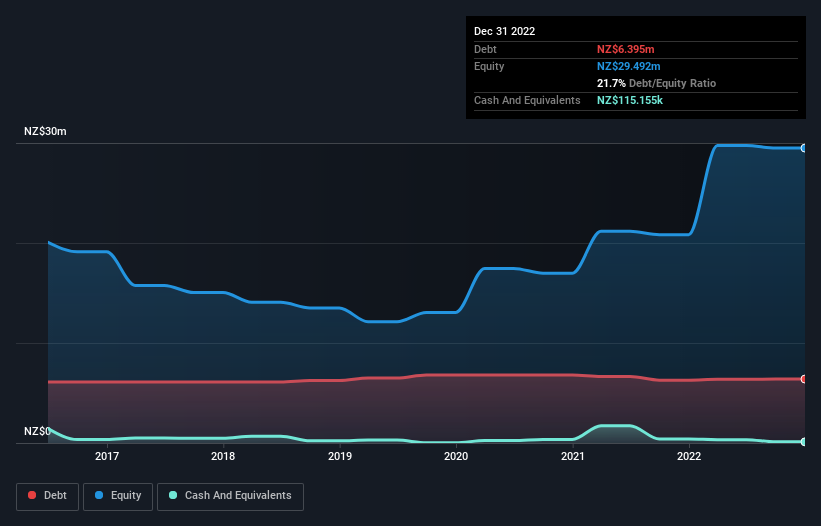- New Zealand
- /
- Beverage
- /
- NZSE:MWE
These 4 Measures Indicate That Marlborough Wine Estates Group (NZSE:MWE) Is Using Debt Extensively

Warren Buffett famously said, 'Volatility is far from synonymous with risk.' It's only natural to consider a company's balance sheet when you examine how risky it is, since debt is often involved when a business collapses. We note that Marlborough Wine Estates Group Limited (NZSE:MWE) does have debt on its balance sheet. But the real question is whether this debt is making the company risky.
What Risk Does Debt Bring?
Debt and other liabilities become risky for a business when it cannot easily fulfill those obligations, either with free cash flow or by raising capital at an attractive price. If things get really bad, the lenders can take control of the business. However, a more usual (but still expensive) situation is where a company must dilute shareholders at a cheap share price simply to get debt under control. Having said that, the most common situation is where a company manages its debt reasonably well - and to its own advantage. The first thing to do when considering how much debt a business uses is to look at its cash and debt together.
View our latest analysis for Marlborough Wine Estates Group
How Much Debt Does Marlborough Wine Estates Group Carry?
The chart below, which you can click on for greater detail, shows that Marlborough Wine Estates Group had NZ$6.40m in debt in December 2022; about the same as the year before. Net debt is about the same, since the it doesn't have much cash.

A Look At Marlborough Wine Estates Group's Liabilities
According to the last reported balance sheet, Marlborough Wine Estates Group had liabilities of NZ$7.29m due within 12 months, and liabilities of NZ$3.33m due beyond 12 months. On the other hand, it had cash of NZ$115.2k and NZ$914.4k worth of receivables due within a year. So its liabilities outweigh the sum of its cash and (near-term) receivables by NZ$9.59m.
Of course, Marlborough Wine Estates Group has a market capitalization of NZ$56.3m, so these liabilities are probably manageable. But there are sufficient liabilities that we would certainly recommend shareholders continue to monitor the balance sheet, going forward.
We use two main ratios to inform us about debt levels relative to earnings. The first is net debt divided by earnings before interest, tax, depreciation, and amortization (EBITDA), while the second is how many times its earnings before interest and tax (EBIT) covers its interest expense (or its interest cover, for short). Thus we consider debt relative to earnings both with and without depreciation and amortization expenses.
Marlborough Wine Estates Group has a debt to EBITDA ratio of 3.9 and its EBIT covered its interest expense 2.8 times. This suggests that while the debt levels are significant, we'd stop short of calling them problematic. However, the silver lining was that Marlborough Wine Estates Group achieved a positive EBIT of NZ$950k in the last twelve months, an improvement on the prior year's loss. The balance sheet is clearly the area to focus on when you are analysing debt. But it is Marlborough Wine Estates Group's earnings that will influence how the balance sheet holds up in the future. So if you're keen to discover more about its earnings, it might be worth checking out this graph of its long term earnings trend.
Finally, a business needs free cash flow to pay off debt; accounting profits just don't cut it. So it's worth checking how much of the earnings before interest and tax (EBIT) is backed by free cash flow. Considering the last year, Marlborough Wine Estates Group actually recorded a cash outflow, overall. Debt is usually more expensive, and almost always more risky in the hands of a company with negative free cash flow. Shareholders ought to hope for an improvement.
Our View
We'd go so far as to say Marlborough Wine Estates Group's conversion of EBIT to free cash flow was disappointing. Having said that, its ability to handle its total liabilities isn't such a worry. Looking at the balance sheet and taking into account all these factors, we do believe that debt is making Marlborough Wine Estates Group stock a bit risky. Some people like that sort of risk, but we're mindful of the potential pitfalls, so we'd probably prefer it carry less debt. There's no doubt that we learn most about debt from the balance sheet. However, not all investment risk resides within the balance sheet - far from it. For example, we've discovered 1 warning sign for Marlborough Wine Estates Group that you should be aware of before investing here.
When all is said and done, sometimes its easier to focus on companies that don't even need debt. Readers can access a list of growth stocks with zero net debt 100% free, right now.
New: Manage All Your Stock Portfolios in One Place
We've created the ultimate portfolio companion for stock investors, and it's free.
• Connect an unlimited number of Portfolios and see your total in one currency
• Be alerted to new Warning Signs or Risks via email or mobile
• Track the Fair Value of your stocks
Have feedback on this article? Concerned about the content? Get in touch with us directly. Alternatively, email editorial-team (at) simplywallst.com.
This article by Simply Wall St is general in nature. We provide commentary based on historical data and analyst forecasts only using an unbiased methodology and our articles are not intended to be financial advice. It does not constitute a recommendation to buy or sell any stock, and does not take account of your objectives, or your financial situation. We aim to bring you long-term focused analysis driven by fundamental data. Note that our analysis may not factor in the latest price-sensitive company announcements or qualitative material. Simply Wall St has no position in any stocks mentioned.
About NZSE:MWE
Slight with mediocre balance sheet.
Market Insights
Community Narratives




